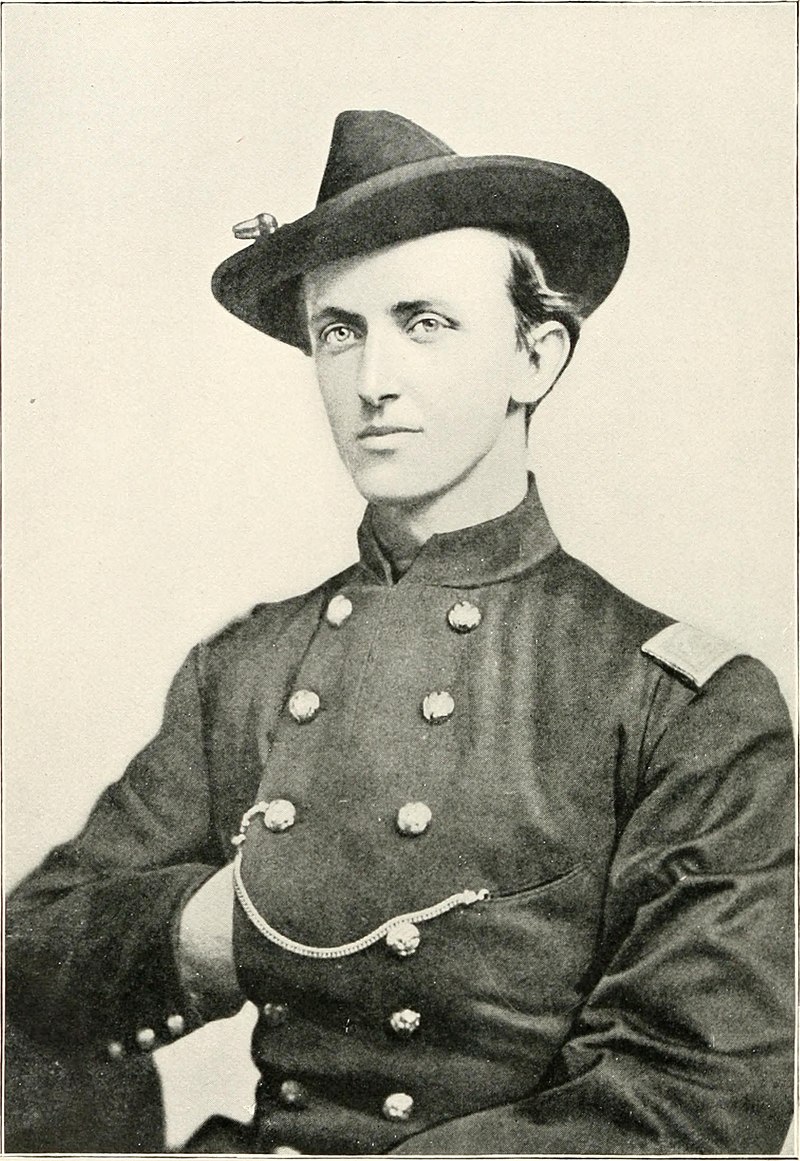William Francis Bartlett
William Francis Bartlett was born on June 6, 1840, in Haverhill, Massachusetts, to Charles Bartlett and Harriett Plummer. His father was a merchant who owned $10,000 of real estate and $15,500 of personal property by 1860. The family lived in Winthrop, Massachusetts. He attended Phillips Academy, and he enrolled at Harvard College in 1858. According to one scholar, he earned a reputation for his “love of parties, women, sports and theater.”
He left college when the Civil War began. He enlisted in the Union army in April 1861, and he mustered in as a private in the 4th Massachusetts Infantry Battalion. The battalion spent the next few months in Boston Harbor, and he mustered out in June 1861. In August 1861, he received a commission as a captain in the 20th Massachusetts Infantry. He took part in the Peninsula campaign, and he was wounded in the left knee during the siege of Yorktown on April 24, 1862. Surgeons amputated his leg, and he returned to Boston to recover. He completed his Harvard degree in August 1862.
In November 1862, he became colonel of the 49th Massachusetts Infantry. He participated in the siege of Port Hudson, during which he was wounded in the left wrist and right leg. He spent the next few months recovering, and he mustered out on September 1, 1863. Finally, in April 1864, he received a commission as colonel of the 57th Massachusetts Infantry. He took part in the Overland Campaign. He was wounded again at the Wilderness on May 6, 1864, and he was promoted to brigadier general the following month.
He participated in the siege of Petersburg. Confederate forces captured him at the Battle of the Crater, and he spent the next two months at Libby Prison. He was exchanged in September 1864, and he rejoined the army in June 1865. He resigned on July 18, 1866.
He returned to Winthrop after leaving the army. He married Mary Agnes Pomeroy on October 14, 1865, and they had at least two children: Agnes, born around 1867; and Carrie, born around 1869. He lived in Richmond, Virginia, for several years, and he worked as manager of Tredegar Iron Works. By 1870, he was living in Pittsfield, Massachusetts, and he owned $95,000 of real estate and $3,000 of personal property. He died there on December 17, 1876, from consumption and “wounds and chronic diarrhea contracted in the army.”
Image: William F. Bartlett (courtesy Wikicommons)
DATABASE CONTENT
| (4456) | Bartlett, William Francis | 1840-06-06 | 1876-12-17 |
- Conflict Side: Union
- Role: Soldier
- Rank in: Private
- Rank out: Brigadier General
- Rank highest: Brigadier General
- Gender: Male
- Race: White
Documents - Records: 1
- (12408) [writer] ~ William F. Bartlett Statement, 12 April 1864
Places - Records: 2
Regiments - Records: 4
SOURCES
1860 and 1870 United States Federal Censuses, available from Ancestry.com; Civil War Soldier Records and Profiles, 1861-1865, available from Ancestry.com; Military Service Records of William F. Bartlett, available from Fold3.com; Massachusetts Town and Vital Records, 1620-1988, available from Ancestry.com; “William Francis Bartlett,” Secretary of the Commonwealth of Massachusetts, available from sec.state.ma.us; “William Francis Bartlett” Wikipedia profile, available from https://en.wikipedia.org/wiki/William_Francis_Bartlett





